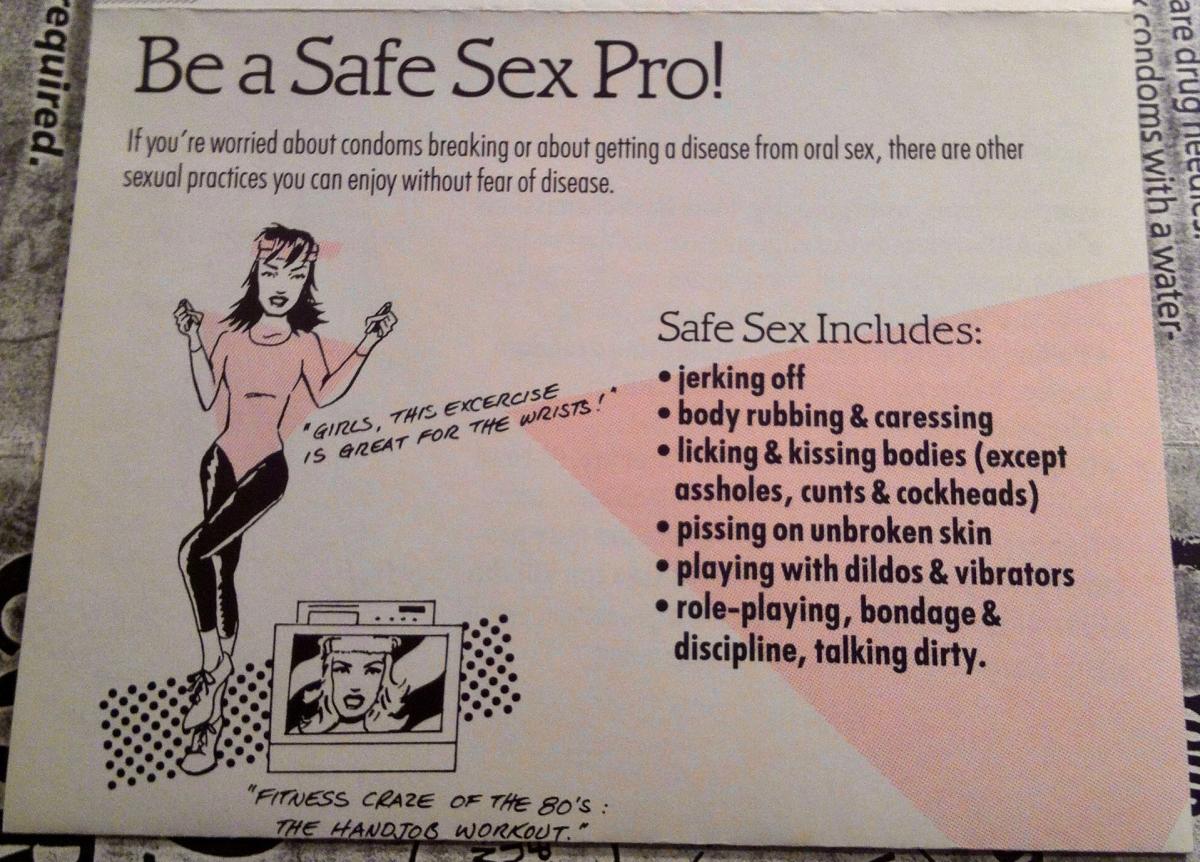by Gordon Richardson, with assistance from Alan Miller and Michael Holmes (photography)
Unlike most archives, The ArQuives doesn’t only collect historical records and documents, but also keeps three-dimensional artifacts where space permits. This month we feature a small sampling of those artifacts that just don’t quite fit into our standard archival collections.
Dick’s Big Cookie Cutters
Pictured above. Manufactured by Novelty Products, USA, in 1990, the cutters are in three sizes. Ideas for use include cutting from a sheet cake and decorating accordingly, pouring melted chocolate into the forms and letting it set in the fridge, cutting shapes out of cookie dough, and cutting shapes out of a pan of Jello.
Fairy Soap
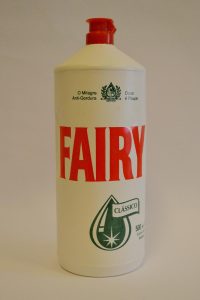
The Fairy Soap brand originated in the United States but is not widely known there. Nathaniel Kellogg Fairbanks, born in New York County in 1829 and later moving to Chicago, created a business manufacturing soap. One brand was Fairy Soap which was named from the first four letters of Fairbanks’ last name. In 1837 Thomas Hedley & Company, a maker of soap and candles in England, bought the rights to the word “Fairy” from Fairbanks. In 1898 the Hedley Company began marketing Fairy Soap in the UK. In 1930 the Procter and Gamble Company acquired Thomas Hedley & Company and took over marketing the Fairy brand in Europe. This bottle held in The ArQuives was made for distribution in Portugal circa 1990s.
Due to its brand name and popular slogan, “Have You A Little ‘Fairy’ in Your Home?”, the soap became a source of jokes by and about gay men. In the 1930s, comic magazine Ballyhoo printed a parody ad for “Faery Soap,” featuring a dandy-looking man exclaiming, “WHOOPS! I’m Just Curazy about Faery Soap!” with a fake promo for the brand’s theme song, “Homo Sweet Homo.” Below image courtesy of JD Doyle’s Queer Music Heritage website.
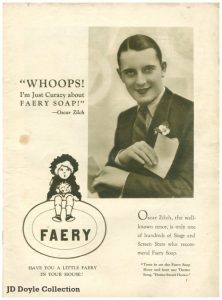
Aegis Condoms
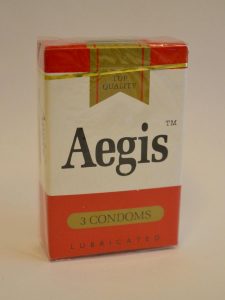
Safe sex in a pack of fags. Three individually electronically tested and hygienically sealed condoms in what is made to look like a small packet of cigarettes. The condoms were manufactured in Korea in 1993 and are distributed by Aegis International Healthcare Corporation, Torrance, California.
Gay Bar
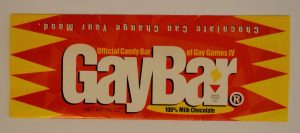
Absolut Vodka Colors Thermos
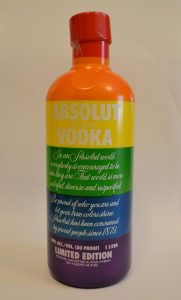
Absolut Rainbow. Absolut vodka has been consumed by “proud” people since 1879. This thermos holds a one litre bottle of alcohol and is a limited edition made in Ahus, Sweden and dates after 2000. One of many, many rainbow-painted products kept at the archives.
Stickers
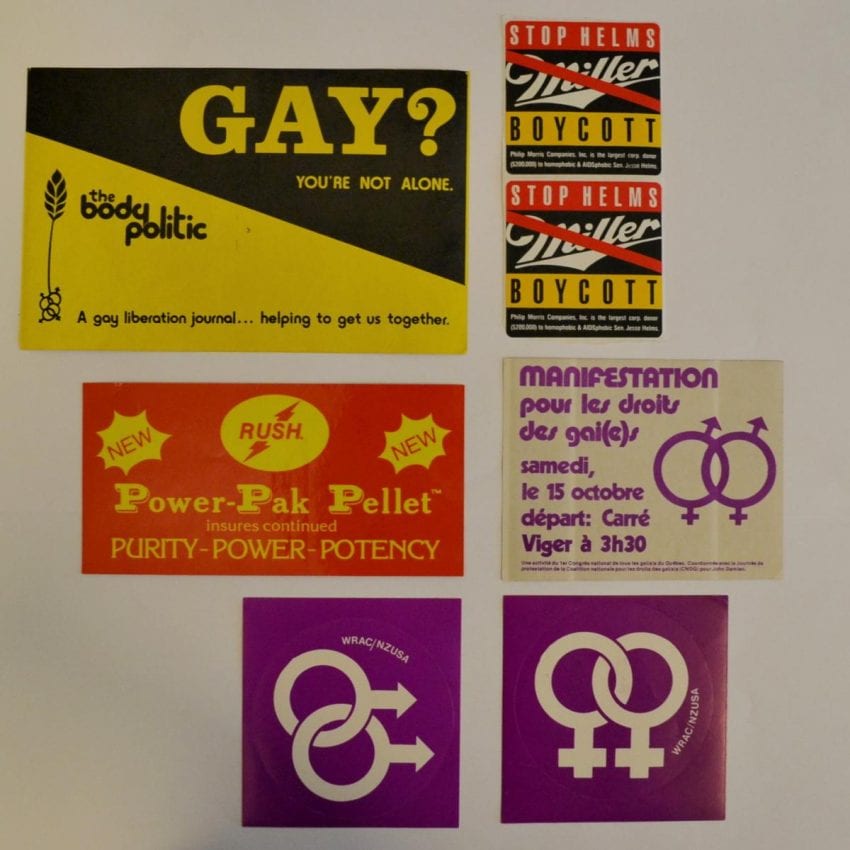
The Body Politic (top left)
“Gay? You’re not alone.” A sticker for The Body Politic gay liberation journal, established in 1971, whose papers are the foundation of today’s The ArQuives archive. The Body Politic published monthly until it folded in 1987. This sticker is dated from the 1970s.
Miller Beer Boycott (top right)
“Stop Helms” Philip Morris Companies, Inc., owner of Miller Beer, was the largest corporate donor ($200,000) to homophobic and AIDSphobic Senator Jesse Helms, according to this sticker promoting a boycott of the brewing company. “There is not one single case of AIDS in this country that cannot be traced in origin to sodomy, “ Helms said in 1988.
Rush Poppers (middle left)
Rush Poppers, officially named Rush Liquid Incense by its makers, Pac West Distributing, Inc., has since the 1970s been the world’s best-selling aroma popper. This sticker dates from 1982.
Manifestation pour les driots des gai(e)s (middle right)
Une activité du 1er congrès national de tous les gai(e)s du Quebec, samedi le 15 octobre, 1977.
WRAC/NZUSA (bottom left and right)
Women’s Rights Action Coalition (WRAC), part of the Gay Liberation Front, Auckland, NZ / New Zealand Union of Students’ Associations (NZUSA), located in Wellington, was established in 1929. It initially focussed its activities on sporting and social concerns. It developed a strong involvement in social issues during the 1960s and 1970s, including supporting homosexual law reform.

